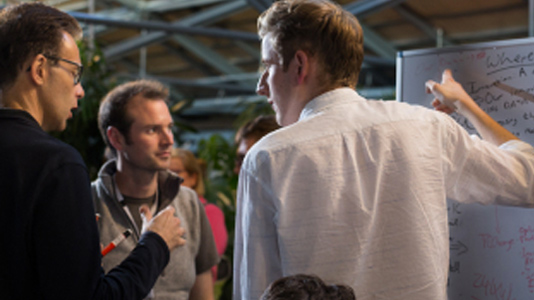We are developing and connecting renewable energy to decarbonise the electricity system and deliver net zero by 2040. We continue to heavily invest in the development of new renewable generation, including onshore and offshore wind and solar, and will significantly increase the amount of renewable generation connected to our electricity networks.
Materiality and Stakeholders
Materiality refers to economic, social and environmental aspects of our business that positively or negatively impact the world around us. At ESB, we identify material issues based on what is important to our customers, stakeholders and our businesses, as well as the significance of the issue for the economy, society and the environment.
UN Sustainable Development Goals
Our Driven to Make a Difference: Net Zero by 2040 strategy directly supports the UN Sustainable Development Goals (SDGs) which provide a global blueprint to achieve a better and more sustainable future for all by 2030. ESB is focusing on three of the SDGs in order to make a lasting and tangible difference.
- Goal 7: Ensure access to affordable, reliable, sustainable and modern energy for all.
- Goal 9: Build resilient infrastructure, promote inclusive and sustainable industrialisation and foster innovation.
- Goal 13: Take urgent action to combat climate change and its impacts.
We are mindful of all the SDGs and our impact on them. We endeavour to contribute to the wider SDG agenda across all of our operations.
Stakeholders
ESB operates in a multi-stakeholder environment. Part of our responsibility is to understand and balance the priorities of different stakeholder groups while ensuring the successful delivery of our Net Zero strategy, and our commitments to meeting the UN’s SDGs.
Key stakeholder groups for ESB, include: our customers, employees, shareholders, governments, regulators, business partners and suppliers, local communities, academia, non-governmental organisations and wider society.
We gain invaluable insights into the priorities and material concerns of our stakeholders through:
- Stakeholder research every three years
- Public research every quarter
Membership of external alliances and memberships, such as:
- Business in the Community Ireland
- IBEC
- The Economic and Social Research Institute
- Chambers of Commerce
- Eurelectric
- Electricity Association of Ireland
- Bettercoal
Through our materiality assessment process, we have identified and prioritised the following key issues:


We will invest in infrastructure to maintain reliable and secure electricity supplies. This is necessary to accommodate high levels of intermittent renewable generation on the system and to support a growing dependence on electricity across all sectors of society. We will develop smarter, more resilient networks to accommodate the electrification of transport and heating that will be crucial to reducing emissions across society. We will also invest in storage assets and zero-carbon dispatchable generation that can compete to meet the need for non-intermittent sources of energy and ensure continuity of supply.

We will empower, enable and support our customers and the communities we serve to achieve net zero. This reflects our longstanding commitment to providing the latest and most innovative infrastructure, products and services to help our customers live more efficiently and sustainably into the future.

Our retail brand – Electric Ireland – is committed to delivering the best value it can for our customers and continues to offer one of the lowest standard rates in the market. Supports that Electric Ireland has put in place for customers with financial challenges include flexible payment plans, payment holidays and PAYG meters, in addition to smart meter tariffs and sharing the latest energy saving advice.
Electric Ireland provides support through its long-standing partnerships with organisations such as the Money Advice and Budgeting Service (MABS) and the Society of St. Vincent de Paul (SVP), and by utilising its €5 million Customer Hardship Fund established during the pandemic.

ESB is committed to the highest standards of corporate governance, business integrity and stakeholder engagement in all its activities. ESB’s management team and staff strictly adhere to our Code of Ethics and Group policies, comply in all material respects with the Code of Practice for the Governance of State Bodies and publish all relevant documents on our website for transparency.
